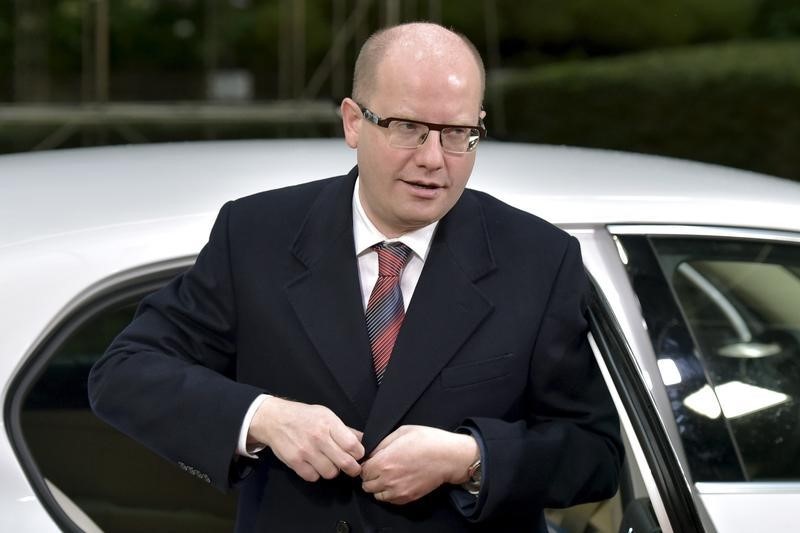BRATISLAVA (Reuters) - Slovakia wants the European Union to speed up reinforcement of the bloc's external border controls, Prime Minister Robert Fico said on Friday, adding that a summit on the issue planned for later this year should be brought forward.
Fico, speaking after a wave of attacks on women in Germany triggered debate on refugee policies, said he would address the issue in a letter to European Council President Donald Tusk and the head of the European Union's executive, Jean-Claude Juncker.
EU leaders pledged to fast-track the establishment of an EU border and coastguard force at a summit last month and are due to agree the details of the new border force by the middle of this year.
"The original timetable for preparation of the European border and coast guard is unacceptable. By the time it is created -- in the autumn at the earliest -- 2 million immigrants could have come to Europe," Fico told a news conference.
The Slovak leader has made immigration the key element of his campaign ahead of a March 5 parliamentary election.
His government has also filed a lawsuit against the European Commission's plan for mandatory quotas to share out 120,000 asylum seekers among the EU's 28 member states.
Slovakia, which patrols part of the border between the EU's passport-free Schengen zone and Ukraine, has pushed with other central European countries for stronger borders to stem the flow of migrants into Europe.
After Fico's comments on Friday, Czech Prime Minister Bohuslav Sobotka said on his Twitter (N:TWTR) account that the Czech Republic was ready to support any action that led to the faster creation of a border guard, including an extraordinary summit.
Fico has linked the influx of migrants into the bloc to the November attacks in Paris and violence on New Year's Eve in Cologne, Germany, and on Thursday called multiculturalism "a fiction".
His immigration stance finds an echo with voters in Slovakia, a Catholic country of 5.4 million with a largely homogenous society and next to no experience as a destination for immigrants.
German Chancellor Angela Merkel has promised to respond decisively to the assaults in Cologne and elsewhere in Germany.
Some 121 women are reported to have been robbed, threatened or sexually molested by gangs of men as revelers celebrated on New Year's Eve near Cologne's Gothic Cathedral.

A German Interior Ministry spokesman told a news conference that federal police had identified 31 people suspected of playing a role in the violence, 18 of whom were in the process of seeking asylum in Germany.